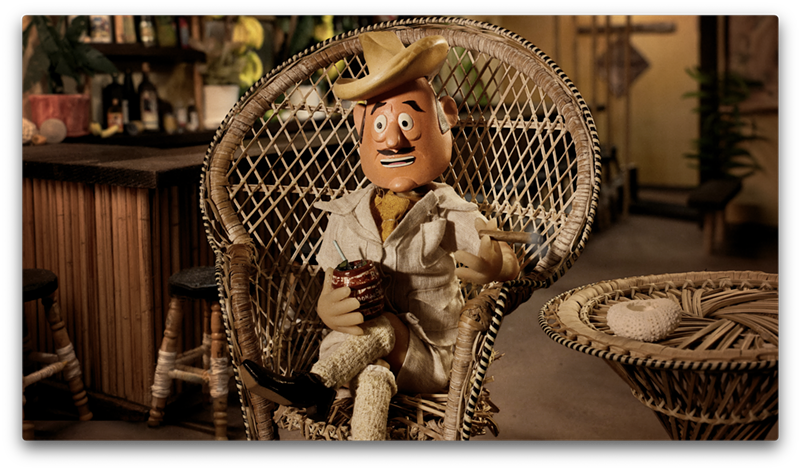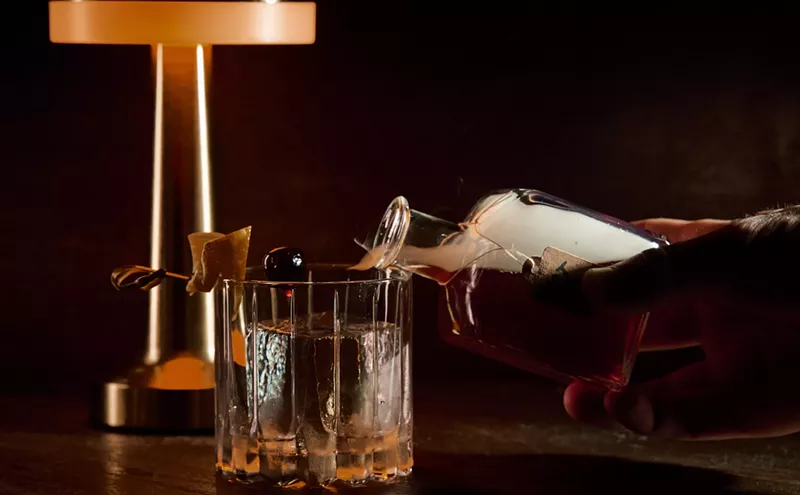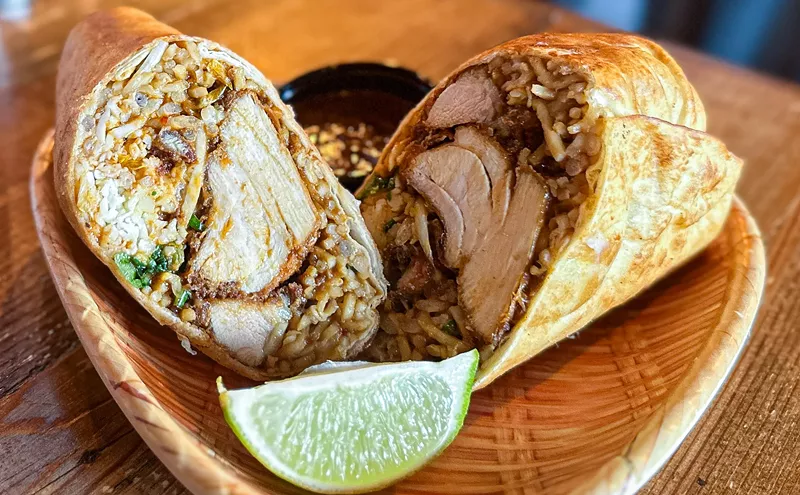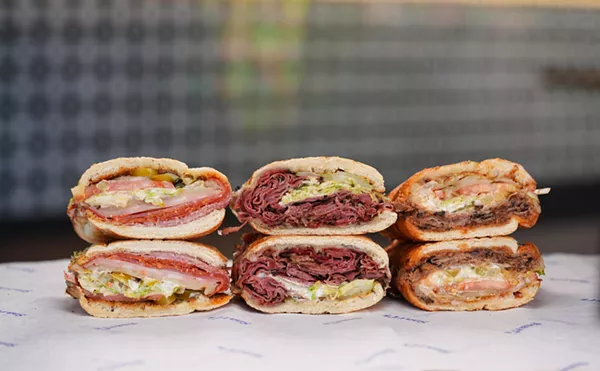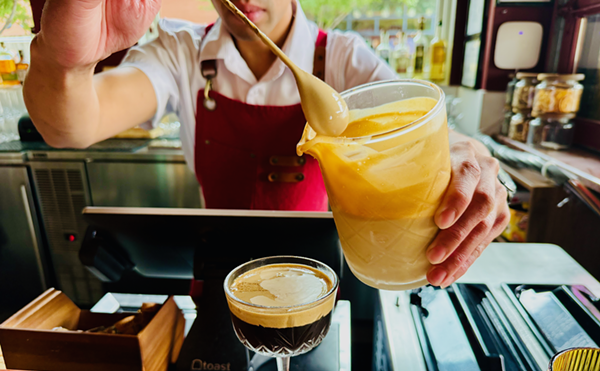Donn Beach, perhaps better known to many as Don the Beachcomber, is considered the founding father of tiki culture and the inventor of many classic cocktails, including tiki standards such as the Zombie, Three Dots and a Dash and the Navy Grog. His Hollywood hangout, Don’s Beachcomber (later renamed Don the Beachcomber), opened in 1933 just after prohibition was repealed. The bar attracted glamorous silver screen stars and became ground zero for the lifestyle that welcomed island breezes and tropical escapes.
So, sure, none of that sounds very Texan, does it? But Beach was born in Mexia, Texas, not far from Waco. Not that he wanted anyone to know that.
The 2024 documentary The Donn of Tiki explores the history of tiki culture by starting at Beach’s roots. A screening of the film is scheduled for Friday, June 13, as part of the annual Dallas Tiki Week festivities. As the warmly engaging, James Beard-nominated doc discusses, Beach created not only what became known as tiki culture but also seemingly created his own origin story by claiming he was born somewhere other than Texas.
That he did so by telling people he was born in Louisiana may sting some proud Lone Star tiki lovers, but according to the film’s directors, Alex Lamb and Max Well, the colorful Beach probably had his reasons.
“I thought that it had to do with exoticism,” Lamb said of why Beach might’ve wanted to hide his Mexia origins. “He thought the merging of cultures in New Orleans kind of fit better for his story. And since he kind of made everything up anyway, it seemed like, but he says that he's from three different places throughout his life. He says he is from New Orleans, and then sometimes he says he's from Jamaica. So I don't know, it is a weird thing. I don't think he thought anyone would ever be making a documentary about him or caring where he was born.”
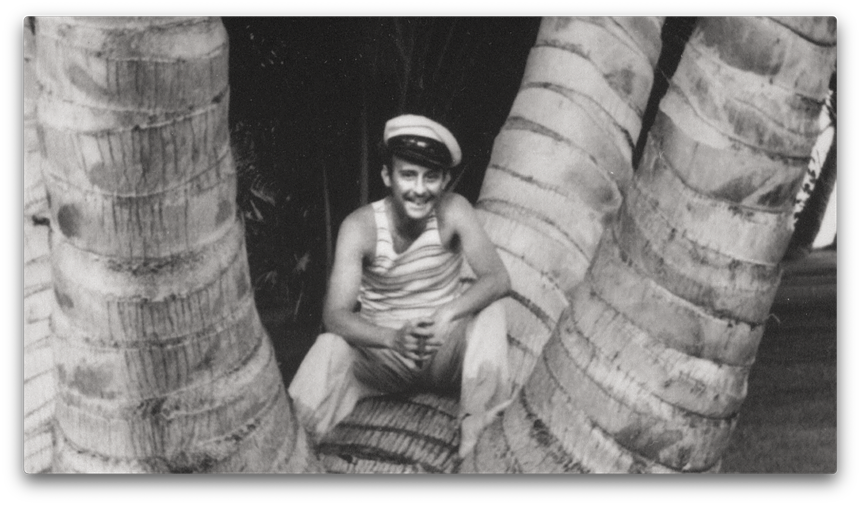
Donn Beach opened the first Don's Beachcomber tiki bar in Hollywood in 1933.
Courtesy Surf Monkey Films
But even more so than Beach is Texan, tiki is “undeniably American,” according to narration in the film’s introduction. For all of its exotic dreaminess and Polynesian flair, Beach’s creation comes from the same place so many other magical, whimsical fantasies originate.
“I think fundamentally tiki is really kind of a Hollywood thing,” Well said. “It came from Donn having connections in Hollywood and having access to all of this stuff that he had collected on his travels and that he was importing from the tropics. He had this side business that was importing artifacts and art and carvings and stuff like that. And that lasted for many decades. So the fact that he was in Hollywood and he kind of was connected with the Hollywood scene at that time and had all this stuff, he threw it together and made this bar.”
Throughout the film, famous names from a bygone golden era and major historic markers roll out one after another. Indeed, the documentary is not so much a niche tiki movie one can only enjoy while wearing a grass skirt, as it is a look at American 20th century history through the colorful lens of Donn Beach’s sometimes intoxicating story.
“When we were editing, we kept asking ourselves if our moms would find this interesting,” Well said. “How do you make a story that's kind of universal and not just for the super hardcore tiki fans to learn about Donn? We wanted [the hardcore fans] to be happy with the documentary. We wanted them to get something out of it, but we also wanted it to be something that would be relatable to everybody.”
Over the years, tiki culture has gotten a bad rap in pop culture, although that has started to change in recent years, thanks in large part to films like The Donn of Tiki and the many high-quality tiki bars dedicated to craft recipes that continue to pop up. As the film points out, when Don’s Beachcomber first opened, sophisticated movie stars showed up in formal wear, not Hawaiian shirts and cargo shorts, after all. The drinks were meticulously crafted with precise portions of sweet and sour, not syrupy kitchen sink concoctions parading as tropical treats.
Another element of tiki culture that was vital and prevalent in those early days that all too often seems to go unmentioned now is that many Filipino immigrants who worked at Don’s Beachcomber played a crucial creative role in developing the style and flavors of all things tiki.
“I think for most people, that connection is not apparent in any way, and that was really a huge part of Donn's success in the beginning was these guys. Most of them carried on and continued working in tropical bars,” Well said. “A lot of them created many of the cocktails that are popular now today. So yeah, that was a huge part of the scene early on, and that was something where Donn was connected with that community when he was kind of a young guy without a lot of money in Los Angeles, and that was a connection that kind of stayed for many, many, many years.”
The film itself carries the whimsical essence of tiki culture with a blend of live interview footage and imaginative animation. Rather than simply playing audio of Beach, who died in 1989, being interviewed, the filmmakers opted to have a stop-motion animated figure portray Beach being interviewed.
Those moments with Beach’s figure not only aesthetically matched the film's mid-century timeline but also allowed the viewer to sink further into the look and feel of it all. Indeed, tiki culture is an American creation, but even more specifically, it is the product of one Texan’s vision.
“You think about creating a set for Hollywood, the whole idea is you're transported to another time or another place,” Well said. “And that was really the impetus, I think, was to take, to mash up the two things that he loved, which were the South Pacific and Hollywood. And so could it have happened somewhere else in the world? It could have possibly, but Donn was uniquely suited to be the guy to do this having traveled around the world, that was really rare in that era. So it was this perfect storm of things that kind of came together.”

